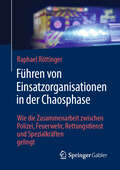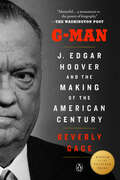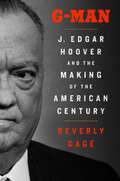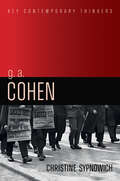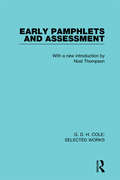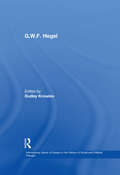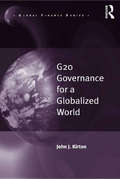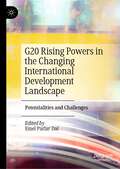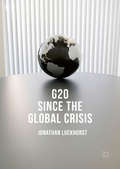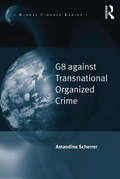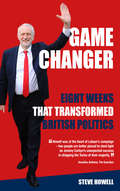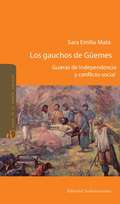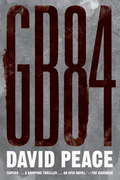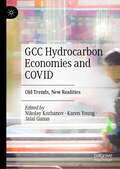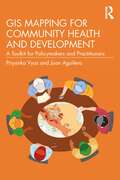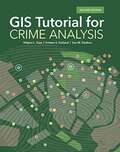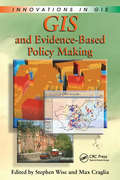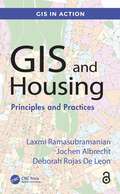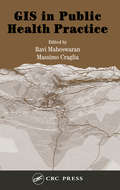- Table View
- List View
Führen in Hochschulen
by Luzia TrunigerDieses Buch bietet Führungspersonen an Hochschulen handlungsrelevantes Wissen aus der Hochschulforschung, der Organisations- und Managementforschung sowie der Arbeits- und Organisationspsychologie. Wissenschaftlerinnen und Wissenschaftler wie auch Persönlichkeiten der Hochschulführung und der Hochschulberatung erörtern aktuelle Entwicklungen, eröffnen Einblicke in die Besonderheiten von Leadership und Management in Hochschulen und geben wertvolle Anregungen für die Umsetzung in die Führungspraxis. Es werden konkrete Herangehensweisen und Methoden dargelegt sowie Herausforderungen, gelungene Interventionen, Erfahrungen und Lösungsansätze diskutiert.
Führen von Einsatzorganisationen in der Chaosphase: Wie die Zusammenarbeit zwischen Polizei, Feuerwehr, Rettungsdienst und Spezialkräften gelingt
by Raphael RöttingerWie kontrolliert man das Unkontrollierbare? Dieses Buch zeigt, wie die Führung und Zusammenarbeit von Polizei, Feuerwehr, Rettungsdiensten und Spezialeinheiten in der Chaosphase gelingen kann. Diese Phase ist geprägt von Unübersichtlichkeit und der Notwendigkeit, unter enormem Zeit- und Handlungsdruck Entscheidungen unter Unsicherheit zu treffen. Professionelle Führung und Zusammenarbeit sind der Schlüssel, um das Chaos zu beherrschen und geordnete Strukturen zu etablieren.Raphael Röttinger bietet theoretisch fundierte Ansätze und praxisnahe Lösungen, um diesen Herausforderungen zu begegnen. Er analysiert die Merkmale und Konzepte von Katastrophen, Großschadenslagen und Anschlägen und beleuchtet die aktuelle Bedrohungslage der inneren und äußeren Sicherheit in Deutschland. Der Autor untersucht die Einsatzziele, -grundsätze und Ressourcen von Feuerwehr, Rettungsdienst, Technischem Hilfswerk (THW), Notfallseelsorge und Polizei im Kontext von Großschadenslagen. Aufbauend darauf bietet das Buch Handlungsempfehlungen, die helfen, Führung in chaotischen Situationen effektiv zu gestalten. Ein besonderer Fokus liegt auf der Schnittstellenproblematik zwischen den verschiedenen Organisationen, insbesondere in den Bereichen taktische Medizin, Raumplanung, Einsatzleitung und Öffentlichkeitsarbeit. Zusätzlich werden spezifische Herausforderungen wie CBRNE-Bedrohungen, komplexe Anschlagsszenarien und Großveranstaltungen wie Fußballspiele analysiert und durch praktische Lösungsansätze sowie Lehren aus realen Einsätzen ergänzt. Das Buch richtet sich an Mitarbeitende von Behörden und Organisationen mit Sicherheitsaufgaben und Entscheidungsträger, die Ansätze zur Bewältigung von Großschadenslagen suchen. Es bietet wertvolle Einblicke für den effektiven Umgang mit extremen Situationen und die Zusammenarbeit von Einsatzorganisationen in der Chaosphase.
Führung und innere Kündigung in der Polizei: Wie transformationale Führung innere Kündigung reduzieren kann (essentials)
by Karl-Heinz Fittkau Jakob Müller Nicole JuffaInnere Kündigung ist nicht nur ein Problem der Polizei. Aber auch in der Polizei finden sich innerlich Gekündigte. Sie haben Einfluss auf den Erfolg bzw. Nichterfolg polizeilichen Handelns und sie frustrieren die übergroße Mehrheit der hochengagierten Kolleginnen und Kollegen, denen die Gewährleistung einer hohen öffentlichen Ordnung und Sicherheit wichtig ist. Zudem ist es kaum möglich, sich von solchen Mitarbeitenden zu trennen. Ein Mangel an Identifikation und Engagement rechtfertigt bei Beamtinnen und Beamten auf Lebenszeit nur äußerst selten die Entfernung aus dem Dienst. Das essential versucht Antworten zu geben, wie sich Führungskräfte verhalten können, um Tendenzen zur inneren Kündigung entgegenzuwirken.
Führungsqualitäten für sozialen Wandel und Entwicklung: Inspiration und Transformation
by Cornelia C. WaltherDas Buch bietet Perspektiven von Entscheidungsträgern. Es soll die Leserinnen und Leser dazu inspirieren, sich für den sozialen Wandel zu engagieren. Ziel ist es, die Ursachen und Folgen sowie den Mehrwert eines integrativen sozialen Wandels greifbar zu machen. Anhand von Geschichten aus dem wirklichen Leben, die sich auf die Kraft des Menschen stützen, um durch Beispiele zu inspirieren, zeigt BeingChange, dass "Zweck für Macht" keine Plattitüde ist, sondern ein Prinzip, das sowohl das subjektive Wohlbefinden als auch den sozialen Fortschritt begünstigt. Die ausgewählten formellen und informellen Akteure des Wandels verdeutlichen, warum Sinn der Unterton echter Befähigung und die wichtigste Zutat für nachhaltige Entwicklung ist. Das Ziel, das mit diesen Geschichten verfolgt wird, ist ein zweifaches: 1) zu zeigen, dass es unabhängig davon, WER und WO man ist und was man hat, möglich ist, seine lebenslangen Bestrebungen und sein tägliches Handeln in Einklang zu bringen, und 2) die Leserzu inspirieren, ihre Suche nach Sinn zu beginnen (oder zu beschleunigen), indem sie herausfinden und verfolgen, was ihnen am wichtigsten ist. Auf der ganzen Welt wächst ein Netzwerk von gleichgesinnten Denkern und Machern, die durch die gemeinsame Überzeugung verbunden sind, dass die Welt nicht als gegeben hingenommen werden darf. Jeder ist willkommen, seine Perspektive von passiv zu aktiv zu ändern und sich anzuschließen.
Für die Praxis gerüstet!?: Practice Readiness am Ende des Fachhochschulstudiums Gesundheits- und Krankenpflege in Österreich
by Ursula Halbmayr-KubicsekBei dem vorliegenden Band handelt es sich um eine qualitative Evaluationsstudie des Studienganges Gesundheits- und Krankenpflege an österreichischen Fachhochschulen.Der Pflegeberuf hat sich in den letzten Jahrzehnten weiterentwickelt und an Komplexität zugenommen. Um diesen Anforderungen gerecht zu werden, benötigen Pflegende unterschiedliche Kompetenzen und Fertigkeiten. Im Rahmen der generalistischen Pflegeausbildung an den Fachhochschulen sollen die Studierenden innerhalb von sechs Semestern diese gesetzlich geforderten Kompetenzen erlernen, um eine Practice Readiness zu entwickeln. Ziel dieses Forschungsprojektes war die qualitative Evaluierung hinsichtlich der Practice Readiness der Absolventinnen und Absolventen. Es fanden qualitative Befragungen von Studierenden der Pflege, Führungspersonen im basalen und mittleren Pflegemanagement sowie Berufseinsteigerinnen und -einsteiger statt. Aus diesen unterschiedlichen Perspektiven konnte die Practice Readiness der Fachhochschulabsolventinnen und -absolventen dargestellt werden.
G-Man (Pulitzer Prize Winner): J. Edgar Hoover and the Making of the American Century
by Beverly GageWinner of the 2023 Pulitzer Prize in BiographyWinner of the 2022 National Book Critics Circle Award in Biography, the 2023 Bancroft Prize in American History and Diplomacy, and the 43rd LA Times Book Prize in Biography | Finalist for the 2023 PEN/Jacqueline Bograd Weld Award for BiographyNamed a Best Book of 2022 by The Atlantic, The Washington Post and Smithsonian Magazine and a New York Times Top 100 Notable Books of 2022 &“Masterful…This book is an enduring, formidable accomplishment, a monument to the power of biography [that] now becomes the definitive work&”—The Washington Post&“A nuanced portrait in a league with the best of Ron Chernow and David McCullough.&”—The Wall Street JournalA major new biography of J Edgar Hoover that draws from never-before-seen sources to create a groundbreaking portrait of a colossus who dominated half a century of American history and planted the seeds for much of today's conservative political landscape.We remember him as a bulldog--squat frame, bulging wide-set eyes, fearsome jowls--but in 1924, when he became director of the FBI, he had been the trim, dazzling wunderkind of the administrative state, buzzing with energy and big ideas for reform. He transformed a failing law-enforcement backwater, riddled with scandal, into a modern machine. He believed in the power of the federal government to do great things for the nation and its citizens. He also believed that certain people--many of them communists or racial minorities or both-- did not deserve to be included in that American project. Hoover rose to power and then stayed there, decade after decade, using the tools of state to create a personal fiefdom unrivaled in U.S. history. Beverly Gage&’s monumental work explores the full sweep of Hoover&’s life and career, from his birth in 1895 to a modest Washington civil-service family through his death in 1972. In her nuanced and definitive portrait, Gage shows how Hoover was more than a one-dimensional tyrant and schemer who strong-armed the rest of the country into submission. As FBI director from 1924 through his death in 1972, he was a confidant, counselor, and adversary to eight U.S. presidents, four Republicans and four Democrats. Franklin Roosevelt and Lyndon Johnson did the most to empower him, yet his closest friend among the eight was fellow anticommunist warrior Richard Nixon. Hoover was not above blackmail and intimidation, but he also embodied conservative values ranging from anticommunism to white supremacy to a crusading and politicized interpretation of Christianity. This garnered him the admiration of millions of Americans. He stayed in office for so long because many people, from the highest reaches of government down to the grassroots, wanted him there and supported what he was doing, thus creating the template that the political right has followed to transform its party.G-Man places Hoover back where he once stood in American political history--not at the fringes, but at the center--and uses his story to explain the trajectories of governance, policing, race, ideology, political culture, and federal power as they evolved over the course of the 20th century.
G-Man: J. Edgar Hoover and the Making of the American Century
by Beverly GageWhen he became director of the FBI in 1924, J. Edgar Hoover was a dazzling wunderkind buzzing with big ideas for reform. He transformed a failing law-enforcement backwater, riddled with scandal, into a modern machine. He believed in the power of the federal government to do great things for the nation and its citizens. He also believed that certain people – many of them communists or racial minorities – did not deserve to be included in that American project. In her nuanced and definitive portrait, Beverly Gage charts Hoover&’s rise to power, as he used the tools of state to create a personal fiefdom unrivalled in U.S. history. Hoover was not above blackmail and intimidation, and his conservative values ranged from white supremacy to a crusading and politicized interpretation of Christianity. But he was more than a one-dimensional tyrant who strong-armed the country into submission. As FBI director for almost fifty years, he was a confidant, counsellor, and adversary to eight U.S. presidents, four Republicans and four Democrats. His conservative values won him the admiration of millions of Americans. He stayed in office for so long because many people, from the highest reaches of government down to the grassroots, wanted him there. And he has done more to shape the political right today than many presidents. G-Man places Hoover back where he once stood: at the centre of American political history. In telling his story, Gage shines a light on great social and political changes in 20th century America, from policing and civil rights to political culture and ideology.
G. A. Cohen: Liberty, Justice and Equality (Key Contemporary Thinkers)
by Christine SypnowichG. A. Cohen was one of the towering political philosophers of the late twentieth and early twenty-first centuries. His intellectual career was unusually wide-ranging, and he was celebrated internationally not only for his for his penetrating ideas about liberty, justice, and equality, but for his method, a highly original and influential combination of analytical philosophy and Marxism. Christine Sypnowich guides readers through the rich body of Cohen’s work. By identifying five ‘paradoxes’ in his thought, she explores the origins of his interest in analytical philosophy, his engagement with the ideas of right-wing libertarianism, his critique of John Rawls’s work, his late-career turn to conservatism, and the tension between his preoccupation with individual responsibility and the idea of a socialist ethos. Sypnowich acknowledges the strengths of Cohen’s positions as well as their tensions and flaws, and presents him as a thinker of startling insight. This compelling introduction is a go-to resource for students and scholars of modern political philosophy.
G. D. H. Cole: Early Pamphlets & Assessment (Routledge Library Editions)
by Noel ThompsonThis volume of extremely rare pamphlets spans over thirty years of prolific output by G D H Cole. It encompasses the challenges of full employment and the role re-armament in achieving that, nationalizing industries, the principles of socialism and the welfare state.
G.W.F. Hegel (International Library of Essays in the History of Social and Political Thought)
by Dudley KnowlesHegel is notable for his distinctive contribution to the perennial concerns of political philosophy. He outlines a powerful account of freedom as both a personal and social achievement, discussing theories of personal rights, private property and punishment. He articulates a social analysis of human action and criticizes Kantian ethics. His theory of self-actualization locates our social identities within 'Ethical Life' - the institutions of family life, civil society and the state - expressing a unique variety of rationalist conservatism. In this volume some of the finest interpreters of Hegel writing in English explore this distinguished heritage and explain its contemporary relevance.
G20 Governance for a Globalized World (Global Finance)
by John J. KirtonThis book offers the most thorough, detailed inside story of the preparation, negotiation, performance, and achievements of G20 gatherings from their start at the finance level in 1999 through their rise to become leader-level summits in response to the great global financial crisis in 2008. Follow the moves of America’s George Bush and Barack Obama, Britain’s Gordon Brown and David Cameron, Canada’s Stephen Harper, Germany’s Angela Merkel, and other key leaders as they struggle to contain the worst global recession since the Great Depression of the 1930s. This book provides a full chapter-long account of each of the first four G20 summits from Washington to Toronto with summaries of the ensuing summits. It uses international relations theory to build and apply a model of systemic hub governance to back its central claim to show convincingly that G20 performance has grown to successfully govern an increasingly interconnected, complex, crisis-ridden, globalized twenty-first century world.
G20 Rising Powers in the Changing International Development Landscape: Potentialities and Challenges
by Emel Parlar DalThis book aims to explore and contextualize G20 rising powers’ increasing role in international development from a comprehensive and multidimensional perspective. This book will scrutinize the G20 rising powers’ evolving role as international development actors around three research questions: 1) How do we contextualize and locate G20 rising powers as emerging actors in international development? 2) What are the main contributions, trends and limits of G20 rising powers in South-South Cooperation? 3) Does G20 rising powers’ active involvement in international development support their foreign policy objectives and challenge the international development order? Based on these three, interrelated research questions, this cluster of chapters is structured as follows: The first part, elaborated under the first research question, focuses on the historical development and current dynamics of (G20) rising powers’ evolving actorness in international development to assess their main motivations, ambitions and instruments. The second part examines the main contributions, trends and limits of G20 rising powers in South-South Cooperation. The third part delves into an assessment of the linkage between G20 rising powers’ active involvement in international development and their foreign policies.
G20 Since the Global Crisis
by Jonathan LuckhurstThis book analyzes the Group of Twenty (G20) since the 2008 financial crisis. The latter event undermined conventional wisdom and governance norms, constituting a more contested international economic regime. G20 leaders sought a cooperative response to the 2008 crisis through the forum, aware of their interdependence and the growing economic importance of key developing states. They agreed to new norms of financial governance based on macroprudential regulation, the Basel III Accords, and enhanced multilateral cooperation. They prioritized G20 cooperation for achieving international economic stability and growth. Differences exist over causes and effects of the crisis, including on the merits of economic austerity or fiscal stimulus strategies; on responsibility for and solutions to international economic imbalances; and concerns about monetary policies and "currency wars". Despite claims from skeptics that G20 cooperation is declining, this book argues its importance for international relations and as a hub of global governance networks.
G8 against Transnational Organized Crime (Global Finance)
by Amandine ScherrerThe fight against money laundering, drug trafficking, illegal immigration, cyber crime, and the promotion of the enhancement of judicial and police cooperation in criminal matters have been at the core of the G8's actions in this field since the 1990s. This book sheds light on the nature, structure and modus operandi of the G8's specific expertise on transnational organized crime from a sociological approach in order to understand the elaboration, production and diffusion of international norms and standards. It provides a detailed analysis of an under-researched aspect of international politics: the intensification of expert-level exchanges on the international stage over the enhanced cooperation against transnational organized crime that has led to an impressive elaboration of best practices and soft law recommendations. Very few studies have focused on the experts who determine these: who they are, what their socio-professional background is, and the nature and impact of their collective work in the global fight against organized crime.
GAME CHANGER Eight Weeks That Transformed British Politics: Inside Corbyn's Election Machine
by Steve Howell'If you want to get the inside account of Labour's historic general election campaign, I couldn't recommend more former Corbyn staffer Steve Howell's Game Changer.' Owen Jones'Game Changer is a vivid account of what it was like to be in the engine room of Jeremy Corbyn's remarkable election campaign.' Dennis Kavanagh, Emeritus Professor of Politics, University of LiverpoolWhen Theresa May called a snap election in 2017, Labour was more than twenty points behind in the polls and it seemed the only question was how big her landslide would be. In the most dramatic election of modern times, Corbyn's inspirational campaign transformed British politics. Labour won its best vote for twenty years and the largest increase in its vote share since 1945. Far from winning a landslide, the Tories were left without a majority and forced to abandon many of their unpopular plans.Steve Howell was at the centre of Corbyn's election machine. A member of the Labour leader's strategy group, he was involved in all the key campaign decisions. From the outset, he believed that Corbyn's campaigning skills, enthusiastic army of supporters and hopeful message could produce a surge in support. In Game Changer, he tells the story of eight weeks that transformed British politics.
GAME CHANGER Eight Weeks That Transformed British Politics: Inside Corbyn’s Election Machine
by Steve Howell'If you want to get the inside account of Labour's historic general election campaign, I couldn't recommend more former Corbyn staffer Steve Howell's Game Changer.' Owen Jones'Game Changer is a vivid account of what it was like to be in the engine room of Jeremy Corbyn's remarkable election campaign.' Dennis Kavanagh, Emeritus Professor of Politics, University of Liverpool When Theresa May called a snap election in 2017, Labour was more than twenty points behind in the polls and it seemed the only question was how big her landslide would be. In the most dramatic election of modern times, Corbyn's inspirational campaign transformed British politics. Labour won its best vote for twenty years and the largest increase in its vote share since 1945. Far from winning a landslide, the Tories were left without a majority and forced to abandon many of their unpopular plans.Steve Howell was at the centre of Corbyn's election machine. A member of the Labour leader's strategy group, he was involved in all the key campaign decisions. From the outset, he believed that Corbyn's campaigning skills, enthusiastic army of supporters and hopeful message could produce a surge in support. In Game Changer, he tells the story of eight weeks that transformed British politics.
GAUCHOS DE G EMES, LOS (EBOOK)
by Sara Emilia MataCómo fueron recibidas en Salta las novedades producidas en Buenos Aires en mayo de 1810? Por qué tuvo lugar en la provincia de Salta una prolongada guerra contra los realistas? Cuáles fueron las razones que llevaron a gran parte del campesinado salteño a tomar las armas? y Porqué lo hicieron siguiendo a Martín Miguel de G emes? Estas y otras preguntas se contestan en este libro, analizando los complejos problemas que atravesaron a la sociedad salteña en las primeras y cruciales décadas del siglo XIX. Para ello se estudian las características que presentaba la sociedad de Salta a fines de la colonia y sus reacciones frente a los inicios del proceso revolucionario; la contrarrevolución alentada por las familias realistas y por la proximidad del ejército del Rey enviado desde Lima; se analiza la insurrección rural que sostuvo la causa de la #libertad americana#; y la construcción de los liderazgos emergentes en la resistencia a la ocupación realista y en particular el de Martín Miguel de G emes, Jefe de la Vanguardia del Ejército Auxiliar del Perú y Gobernador de la Provincia de Salta a partir de 1815.
GB84
by David PeaceNever before published in the U.S., GB84 will be launched in 2014 alongside two other novels by David Peace: The Damned Utd and Red or DeadIn taut and gripping prose that often feels like the relentless text of a surveillance report, GB84 tells the story of the British coal miner's strike of 1984--including the actual bombings, riots and protests that brought the country to the brink of civil war.Called by its author "fiction based on fact," the book depicts a real-life 1984 more violently dystopian than even Orwell imagined. Slowly starving strikers find themselves pitted against a prime minister--Margaret Thatcher--determined to crush them . . . a police force willing to use infiltration and violence to achieve her will . . . and equally hungry scabs who need a job . . .Mixing real events and characters with the voices of the increasingly desperate strikers, the book becomes a stirring saga of courage against overwhelmingly sinister forces, and paints a searing and haunting portrait of events that changed the course of British history.From the Trade Paperback edition.
GCC Hydrocarbon Economies and COVID: Old Trends, New Realities
by Karen Young Nikolay Kozhanov Jalal QanasThe book considers the impact of COVID-19 on the GCC member states through the prism of challenges faced by their hydrocarbon sector. Yet, the publication’s discourse is not solely focused on the problems experienced by the oil and gas industries of the GCC member states after the beginning of the COVID pandemic. Instead, the contributors will analyze how these challenges and subsequent response to them affected other aspects of the GCC socio-economic and political development, from direct impact of the COVID on the energy sector of the GCC to socio-economic consequences of the oil market crisis for the region and its potential fallouts for the international relations of the Gulf.
GIS Mapping for Community Health and Development: A Toolkit for Policymakers and Practitioners
by Priyanka Vyas Juan AguileraThis book explores how maps generated through Geographic Information Systems (GIS) can be used to integrate principles of health equity and environmental justice into community planning and decision-making. To do this, the book puts forward the 3Ps of GIS mapping: People, Place, and Policy. This book demonstrates how different maps reveal different spatial disparities for each topic, providing alternative lens for addressing socio‑cultural, political, or geographical issues. Using a step-by-step approach, and covering the core concepts by which GIS maps can be interpreted, it builds to provide a comprehensive understanding of what a GIS-generated map may tell us, though crucially also what it may not. Featuring illustrated examples throughout, this book is essentially a tool kit to support a nuanced and holistic perspective on community planning.It will appeal to policymakers, planners, and public health consultants, as well as students moving toward this field.
GIS Tutorial For Crime Analysis (GIS Tutorials Series)
by Wilpen L. Gorr Kristen S. Kurland Zan M. DodsonGIS Tutorial for Crime Analysis, second edition, is a workbook for crime analysts and students of criminology. The book presents state-of-the-art methods that can be incorporated into any police department’s standard practices. This second edition builds upon the first edition by updating tutorials, adding a new chapter on building and evaluating predictive models using ModelBuilder and ArcGIS’s hot spot analysis tools, and adding a capstone project on hot spot modeling. In contrast to GIS workbooks that teach skills for one-time projects, this book has users build and use a crime mapping and analysis system to meet all spatial information needs of a police department. The book combines introductions to GIS and crime analysis methods and step-by-step tutorial exercises with independent assignments to teach key GIS skills, including data preparation and updating, map template building, map queries and analysis, automation of map production, and predictive modeling skills. The book also includes a 180-day trial version of ArcGIS Desktop software and tutorial data. Instructor resources are available upon request.
GIS and Evidence-Based Policy Making
by Stephen Wise Max CragliaAlthough much has been written on evidence-based policy making, this is the first volume to address the potential of GIS in this arena. GIS and Evidence-Based Policy Making covers the development of new methodological approaches, emphasizing the identification of spatial patterns in social phenomena. It examines organizational issues, including the
GIS and Housing: Principles and Practices (GIS in Action)
by Laxmi Ramasubramanian Jochen Albrecht Deborah Rojas De LeonGIS and Housing: Principles and Practices discusses one of the challenges that has not been addressed by Geographic Information Science thus far: how can we use GIS to deal with the complex issues underlying the housing crisis? This book provides GIS technicians and analysts with an overview of US housing challenges and examples of how to effectively integrate spatial thinking to address housing policy questions, while simultaneously introducing housing policy analysts to advanced GIS concepts and techniques to create livable neighborhoods that include housing alternatives beyond the single family. Through numerous examples, the authors advocate for a collaborative approach that encourages professionals, policymakers, and analysts, across different ideological and political perspectives, to confront the multifaceted housing crisis. Features: Examines the historical aspects of housing provision, societal attitudes, demographic shifts, and government policies. Bridges the gaps between housing professionals and GIS experts, facilitating an interdisciplinary approach to address the housing crisis. Explores different challenges that are facing urban, suburban, and rural neighborhoods in different US regions. Provides professionals with the necessary tools for informed decision-making. Proposes solutions that leverage the integrative capacity of GIS to address established housing issues. Advocates for denser housing alternatives to address issues of affordability, supply shortages, and homelessness. This book is intended for graduate students and professionals in housing, community development, urban planning, architecture, and GIS, and anyone curious about learning more about the American housing crisis.
GIS and Spatial Analysis for the Social Sciences: Coding, Mapping, and Modeling (Sociology Re-Wired)
by Emily K. Asencio Robert Nash ParkerThis is the first book to provide sociologists, criminologists, political scientists, and other social scientists with the methodological logic and techniques for doing spatial analysis in their chosen fields of inquiry. The book contains a wealth of examples as to why these techniques are worth doing, over and above conventional statistical techniques using SPSS or other statistical packages. GIS is a methodological and conceptual approach that allows for the linking together of spatial data, or data that is based on a physical space, with non-spatial data, which can be thought of as any data that contains no direct reference to physical locations.
GIS in Public Health Practice
by Massimo Craglia Ravi MaheswaranSignificant advances in the evaluation and use of geographic information have had a major effect on key elements of public health. Strides in mapping technology as well as the availability and accuracy of health information enable public health practitioners to link and analyze data in new ways at international, regional, and even street levels. Th

